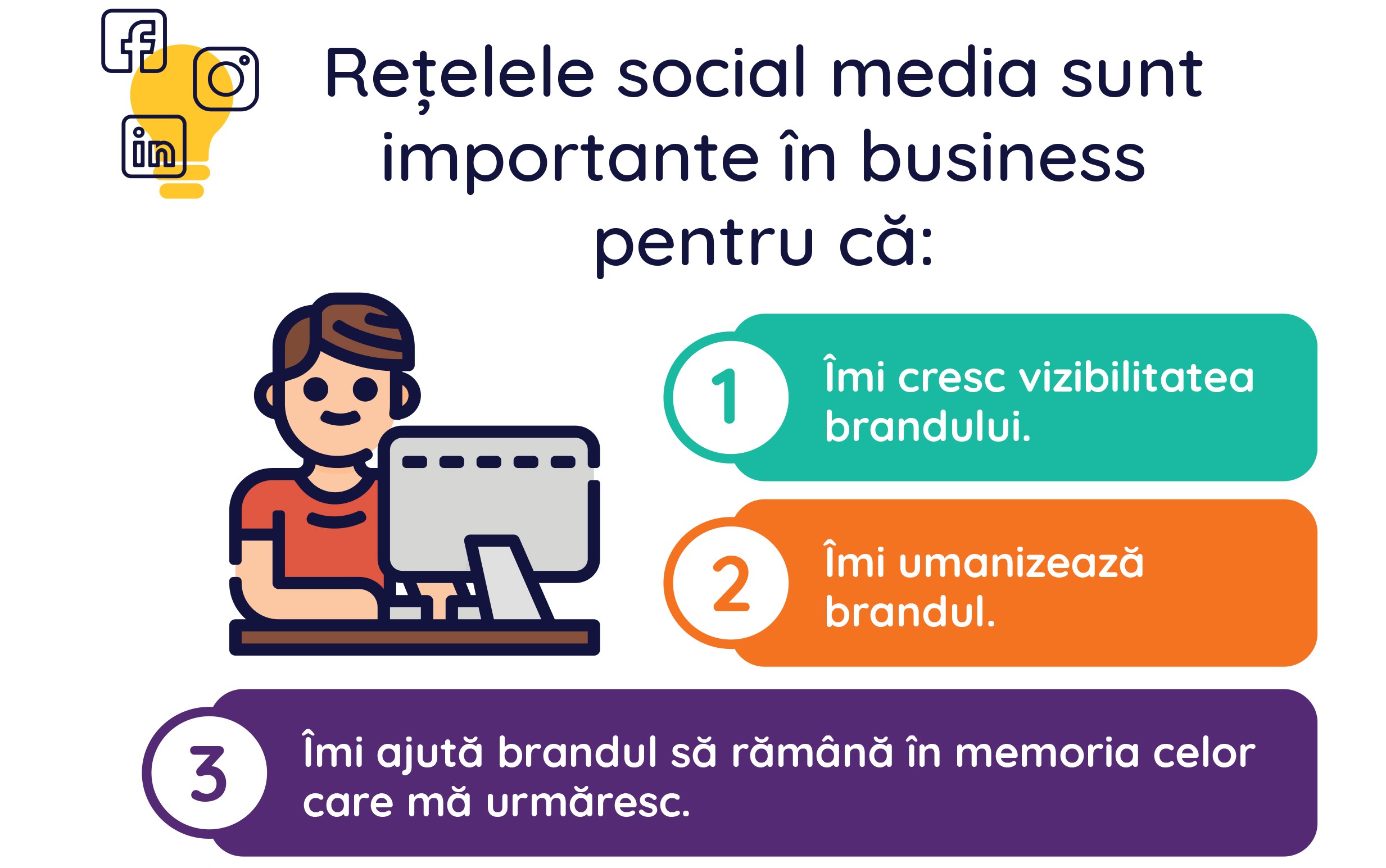
Truth in Social Media
According to European regulations, children are not allowed to have social media accounts until the age of 13. Exceptions are TikTok, with an age limit of 12, and YouTube Kids. However, most children are online from the age of 7. And games like Fortnite also fall into the "social media" category.
"My child does not use social media." – is the first untruth that parents tell themselves. Social media is part of our lives and it is here to stay for a long time. So if the little ones are already present online, the best solution is to learn to use safely, correctly and relevantly the platforms they are present on.
Social media comes with a lot of benefits, but also a lot of lies, which parents and children should be aware of when accessing the Internet.
What do children hide from their parents?
- 22% hide time spent online
- 14% hide visited sites
- 12% hide inappropriate games and movies
- 4% hide that they are being bullied online
- 3% I hide that I bully online
- 5% hide that they share sensitive data
- 5% hide that they download illegally
- 7% I hide that I talk to inappropriate people on social media
That is why, always a sincere discussion with the little ones will manage to solve some of the untruths.
Social media knows and learns everything about us: name, date of birth, language used, time zone, phone number, email address, education level, location, phone model, jobs, phone network, internet network or data about relatives and friends.
All this information can be used against us and the children if we do not know how to protect ourselves.
What are "deepfakes"?
Deepfakes, also known as "synthetic media", are photos or video clips manipulated by artificial intelligence in a way that makes them difficult to detect. Basically, they are copies of people who exist, made so real that they seem real.
Deepfakes are used to manipulate and blackmail public figures or to influence opinions online.
At the beginning of 2020 there were more than 15,000 such deepfakes online. And their number is growing as artificial intelligence and social media evolve.
Excessive editing
With the advent of free photo editing apps, more and more people have started manipulating their appearance and exposing it on social media as real. Handling can also be done for homes, vacations or anything else.
That's why it's so important for kids to follow authentic people who create real and relevant content.
Lies
In social media there is no way to check if someone is telling the truth or not. Anyone can comment on anything. And children are the most exposed to these lies.
Influencers and content creators are paid to promote certain products and services, and it all depends on how credible they are. If they have a strong, united and authentic community, they are less likely to try to manipulate it by telling untruths.
Children have to pass the information through their own filter in order to be able to identify what is real information and what is not.
Security issues
Social media also comes with a lot of security issues:
- hacked accounts
- stolen passwords
- stolen identities
That is why it is essential:
– to know the security settings of the online applications used;
– not to include the date of birth, age or place of birth in the social media profile;
- not to publish vacation plans;
- not to publish addresses, phone numbers or email addresses;
– check all external applications;
- not to comply with payment requests from unreliable sources.
What is identity theft?
It's one of the most common problems online and occurs when someone copies your photos and account information and uses them to impersonate you for various benefits. They could ask for money on your behalf or send nasty messages to your friends.
When faced with this situation, it's important to report the person who stole your identity, and if things don't work out, you can even go to the police.
Beware of online predators!
In social media, anyone can be anyone. For example, a 50-year-old man can pose as a 10-year-old girl without getting caught.
That's why it's important that little ones don't respond to friend requests from people they don't know and let their parents know if they're sending them inappropriate signals.
Fake messages and stolen data
Children need to know that their friends will never ask them for sensitive data (passwords, phone numbers, bank details) on WhatsApp or email.
These types of messages are circulating on WhatsApp and email and have already claimed thousands of victims.
But in addition to all the falsehoods, social media also comes with many beautiful lessons to learn, relevant content and creators who educate their audience every day.
We discuss about the truth in social media, but also about the less pleasant side of the internet KEN Social Media online module.
Through age-appropriate interactive activities and games, children learn about social media, what risks exist and how to protect themselves, how to build and protect their long-term Social Media reputation. Discover tips & tricks to have healthy posts aligned with their visual identity and personal brand, learn how to create quality content.
Educating children about how to stay safe online and what it means to be a good "digital citizen" should start long before they venture into social media.
